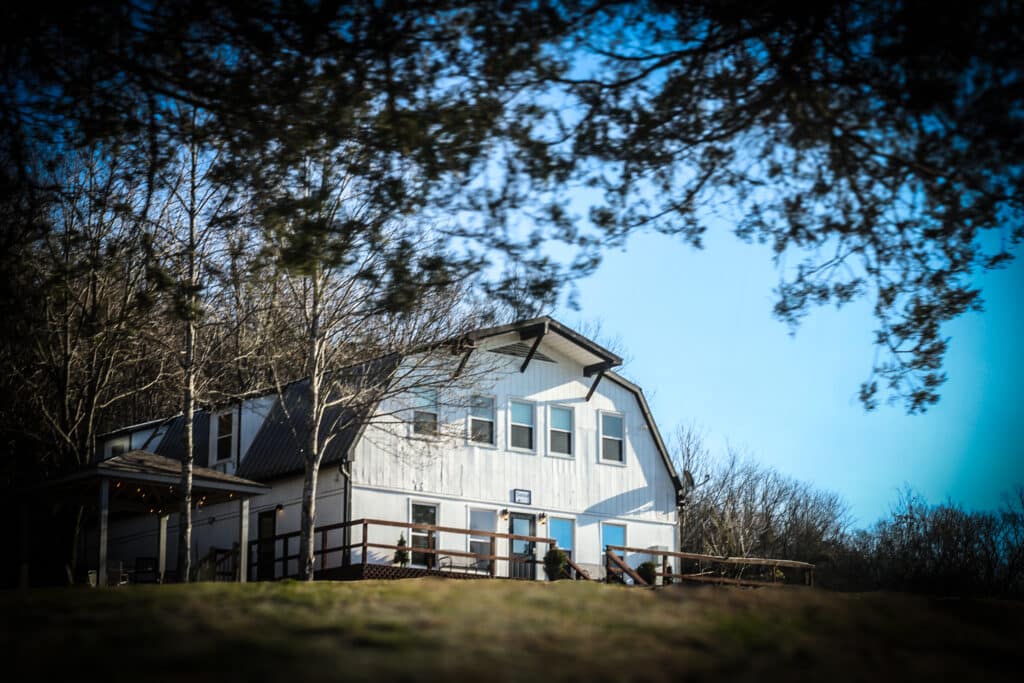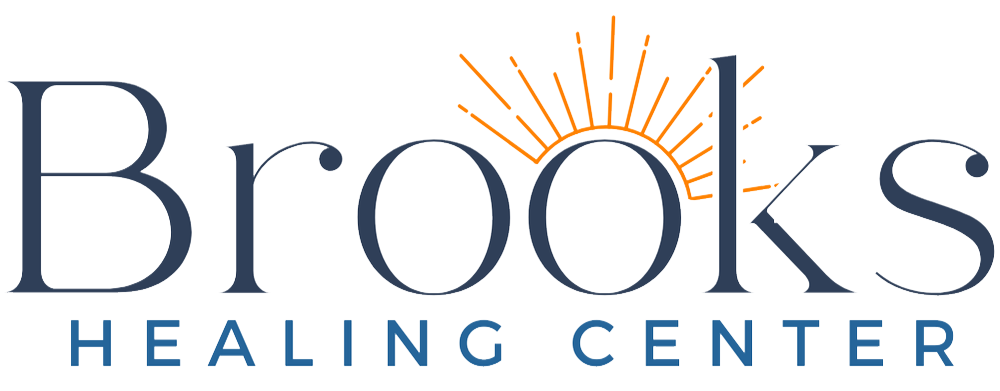Recover, grow, and thrive with addiction treatment programs near you that will meet you where you are and support you where you’re going.
Call Admissions 24/7/365

Brooks Healing Center is just over an hour outside of Nashville, TN. You will be close to city comforts yet separate enough from the real world so you can heal in peace.
You’ll find yourself in a relaxing and supportive environment that helps you leave the pressures of your life behind as you take your first steps on the road to recovery, free from drug addiction, at our Tennessee addiction treatment center near Nashville, TN.
Your health is too important to take a chance with – contact Brooks Healing Center today and let us help you get started on the road to recovery. We’re here to help you or a loved one heal.
Trustindex verifies that the original source of the review is Google. Came for Detox. Staff was awesome and very helpful.Posted onTrustindex verifies that the original source of the review is Google. This was a great place to go I would recommend 7 days a week! I have been here multiple times, they truly care for your wellbeing and want you to succeed. They know what they are talking about when it comes to recovery!Posted onTrustindex verifies that the original source of the review is Google. Brooks is a great place. I would recommend it to anyone. I had a good experience and the people are really friendly.Posted onTrustindex verifies that the original source of the review is Google. They give you the attention and the care you need. They provide therapy and they are amazing!Posted onTrustindex verifies that the original source of the review is Google. Brooks Healing Is a wonderful place to start your recovery journey! They have helped me tremendously.Posted onTrustindex verifies that the original source of the review is Google. Brooks Healing Center provides exceptional service to its clients with a team of highly experienced staff members who are committed to their clients' well-being. The beautiful location adds to the overall peaceful and calming environment, making it an ideal place for those seeking healing and recovery.Posted onTrustindex verifies that the original source of the review is Google. Loved it!Posted on
Rebecca shares her experience seeking drug & alcohol rehab in a structured, supportive setting. In this audio testimonial, she talks about stepping away from daily triggers, the value of consistent care, and how support helped her stay engaged in recovery. Experiences like hers highlight the importance of finding treatment that fits individual needs.
We provide a safe, comfortable detox environment where you can regain your baseline health while a team of medically trained professionals takes care of you.
With residential recovery, you can submerge yourself in a structured, supervised, and supportive environment to heal your mind and body.

People searching for drug rehab in Nashville often want to understand all of their treatment options, not just programs located within city limits. While Nashville has many addiction treatment centers, some individuals choose care outside the city for greater structure, privacy, and distance from daily triggers.
Brooks Healing Center provides residential addiction treatment for adults from Nashville and surrounding areas of Middle Tennessee. Many of the people we serve come from downtown Nashville, East Nashville, and other parts of Davidson County, seeking a supportive environment focused on long-term recovery.
Treatment at Brooks includes medically supervised detox when needed, evidence-based therapy, and individualized care for substance use disorders involving alcohol, opioids, and other drugs. For some Nashville residents, traveling a short distance for care can offer space to stabilize, reset, and focus fully on recovery.







Each new day is a fresh opportunity to make a life-altering change and improve your quality of life. We want to help you identify the underlying challenges to recovery and better understand yourself so you can finally live the life you were always meant to live. Call today to get started and learn more about BHC.
Seeking addiction treatment at Brooks Healing Center near Nashville can offer lasting benefits. Our programs include safe medical detox, structured residential care, flexible partial hospitalization, and a holistic approach addressing all aspects of your recovery. Set in a peaceful environment – and just a stone’s throw away from Nashville – Brooks boasts high praise for our effective and compassionate care, potentially leading to improved physical and mental health, reduced relapse risk, stronger relationships, and boosted self-esteem.
Consider contacting Brooks Healing Center near Nashville today to start your journey to a healthier, happier life. We’re just a phone call away.
trauma triggers, and the stressors of life to restore the balance and reconnect with yourself. Come and get inspired, be supported, and realize your recovery goals.
Brooks Healing Center offers several experiential and adventure therapies to enhance the treatment experience while taking advantage of our gorgeous surroundings. Each of these interventions is designed to facilitate physical and emotional healing as you forge a path forward in recovery and wellness.
Brooks Healing Center specializes in top-of-the-line, research-backed therapeutic techniques. Our modalities are delivered by a team of heart-centered and seasoned staff who’ve seen it all. With decades of combined firsthand experience, our team understands the life-changing effects of substance abuse from the inside out. We are trained to deliver the highest quality of compassion-centered and growth-oriented care.
The secluded location of our addiction treatment program offers a tranquil setting ideal for meditation and reflection. The lush, verdant surroundings cultivate a sense of serenity and calm. This environment aids the healing process by reducing distractions and allowing you to reconnect with yourself in nature.
Simply stated, Brooks offers a comprehensive, compassionate recovery experience like no one else.

Healing from substance abuse can be a lonely journey, but you don’t have to do it all on your own. At Brooks Healing Center, you matter. We’re here to lend you love, support, and acceptance on your journey to find yourself again.
Get in touch today, and let’s get started. You deserve to live a life of purpose and health – and we can help you get there with evidence-based treatment and holistic care at our recovery center.
If you or someone you know is experiencing an emergency related to substance use, immediate help is available near you. Call 911 now or find a local emergency room for emergency medical assistance or crisis intervention and support.
24-Hour Crisis Line: 855-274-7471
a 24/7 hotline that connects state residents with addiction treatment services: 1-800-889-9789
During the intake process, you can expect a comprehensive assessment designed to understand your specific needs and circumstances around drug or alcohol addiction. This usually includes a detailed interview about your medical history, substance use patterns, mental health status, and personal background. The facility will also evaluate your readiness for treatment and discuss any immediate needs, such as detoxification. Based on this assessment, a personalized treatment plan will be developed to address your unique situation, which may involve various therapeutic approaches, goals, and strategies to support your recovery journey.
Nashville rehab programs typically utilize a range of therapeutic approaches tailored to address different aspects of addiction and recovery. Commonly used therapies include:
Yes, many Nashville alcohol rehab and drug rehab facilities offer dual diagnosis treatment, which is specifically designed for individuals dealing with both substance use disorders and co-occurring mental health conditions, such as depression, anxiety, or bipolar disorder. These programs integrate evidence-based treatment for both issues to address the complexities of dual diagnosis. The goal is to provide comprehensive care that addresses all aspects of a person’s health to improve overall treatment outcomes and support long-term recovery in your treatment options.
Preparing for your first day at a residential treatment facility in Nashville involves several practical and emotional steps. Ensure you have packed necessary personal items, such as comfortable clothing, personal hygiene products, and any prescribed medications. It’s also important to follow any pre-admission instructions provided by the facility, which may include dietary or medication guidelines. Mentally and emotionally, it’s helpful to approach the process with an open mind and readiness to engage in treatment. Arriving with a positive attitude and readiness to participate fully in the assessment and treatment planning will help set the stage for a successful recovery journey.
If you relapse during or after rehab, the facility will typically have protocols in place to address the situation. Many programs have built-in relapse prevention strategies that include ongoing support, therapy, and counseling to help manage triggers and high-risk situations. If a relapse occurs, it’s important to communicate openly with your treatment team, as they can help you assess what led to the relapse and adjust your treatment plan accordingly. This might involve additional support services, a reassessment of your treatment approach, or even a temporary return to a more intensive level of care to help get back on track.
[1] SAMHSA. (2023, November 13). HHS, SAMHSA Release 2022 National Survey on Drug Use and Health Data. Www.samhsa.gov. https://www.samhsa.gov/newsroom/press-announcements/20231113/hhs-samhsa-release-2022-nsduh-data on August 22, 2024
[2] Thomas, C. (n.d.). Knox and Anderson Counties Drug-Related Death Report Dr. Darinka Mileusnic-Polchan Chief Medical Examiner Knox County Regional Forensic Center Chief Administrative Officer Knox County Regional Forensic Center. https://www.knoxcounty.org/rfc/pdfs/KCRFC_DRD_Report_2022.pdf on August 22, 2024
[3] Shahar Almog, Scaglione, N. M., Cheong, J., Rung, J. M., Andrea Vásquez Ferreiro, & Berry, M. S. (2022). Spending Time in Nature Serves as a Protective Factor against Problematic Alcohol Use: A Structural Equation Modeling Approach. International Journal of Environmental Research and Public Health, 19(20), 13356–13356. https://www.ncbi.nlm.nih.gov/pmc/articles/PMC9603149/ on August 22, 2024
[4] de Andrade, D., Elphinston, R. A., Quinn, C., Allan, J., & Hides, L. (2019). The effectiveness of residential treatment services for individuals with substance use disorders: A systematic review. Drug and Alcohol Dependence, 201(1), 227–235. https://pubmed.ncbi.nlm.nih.gov/31254749/ on August 22, 2024
